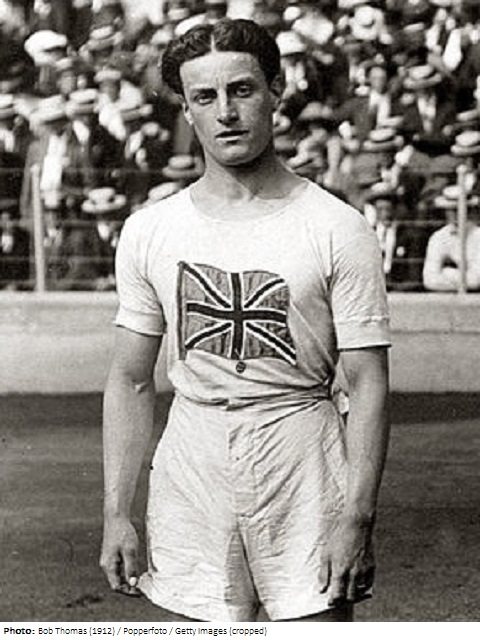
| Roles | Competed in Olympic Games |
|---|---|
| Sex | Male |
| Full name | William Reuben "Willie"•Applegarth |
| Used name | Willie•Applegarth |
| Nick/petnames | The Guisborough Flyer |
| Born | 11 May 1890 in Guisborough, England (GBR) |
| Died | 5 December 1958 (aged 68 years 6 months 25 days) in Schenectady, New York (USA) |
| Measurements | 170 cm / 59 kg |
| Affiliations | Polytechnic Harriers, Westminster (GBR) |
| NOC |  Great Britain Great Britain |
| Medals | OG |
| Gold | 1 |
| Silver | 0 |
| Bronze | 1 |
| Total | 2 |
Willie Applegarth made his début in the AAA Championships in 1910 when, as a 20-year-old Post Office worker representing Polytechnic Harriers, he finished third in the 100 yards. Two years later he won the 200 yards and finished second in the 100 yards, and these performances won him a place in the 1912 Olympic team in both the individual sprints and the relay. Applegarth was eliminated in the semi-finals for the 100 metres in Stockholm, but after some great running the early stages of the 200 metres final he held on the take the bronze medal; then as lead-off man, he put Britain on their way to the gold medals in the relay. He maintained his brilliant form in post-Olympic meetings, setting a world best of 19.8 seconds for 200 yards and equaling the world 100 metres records of 10.6 seconds. He also claimed anew British record of 21.8 seconds for 200 yards and equaled the British 100 yards record of 9.8 seconds. In 1913 he twice equaled his British 100 yards record and set a world best of 14.6 seconds for 150 yards, but the highlight of the season came at the AAA Championships where he had become the first home athlete to take the sprint double. His winning time of 21.6 seconds in the 200 yards was yet another British record. 1914 was Applegarth’s last season as an amateur, and after equaling his own British records in both the 100 yards and 200 yards he won his second AAA double, with the finest performance of his career coming in the 200 yards as he set a world record of 21.2, which was to remain unbeaten for 18 years.
In November 1914, Applegarth turned profession and twice beat the Australian Jack Donaldson, the reigning “world champion”. He continued to run as a “pro” after the war but in 1922 he immigrated to America, where he took up an appointment as a soccer and track coach at Mercersburg Academy in Pennsylvania. During his early days in the US he played for Brooklyn in the American Soccer League and took part in a few exhibition races. On one notable occasion, at Fordham University, he beat Robert McAllister who was one of the leading American sprinters of the time. Willie Applegarth’s coaching appointment at Mercersburg was relatively short-lived and in 1925 he joined the General Electric Company as a welder. He remained with the company for 30 years until his retirement in 1955.
Personal Bests: 100y – 9.8 (1913/14); 100 – 10.6 (1912); 220y – 21.2 (1914).
| Games | Discipline (Sport) / Event | NOC / Team | Pos | Medal | As | |
|---|---|---|---|---|---|---|
| 1912 Summer Olympics | Athletics |  GBR GBR |
Willie Applegarth | |||
| 100 metres, Men (Olympic) | 2 h5 r2/3 | |||||
| 200 metres, Men (Olympic) | 3 | Bronze | ||||
| 4 × 100 metres Relay, Men (Olympic) | Great Britain | 1 | Gold |